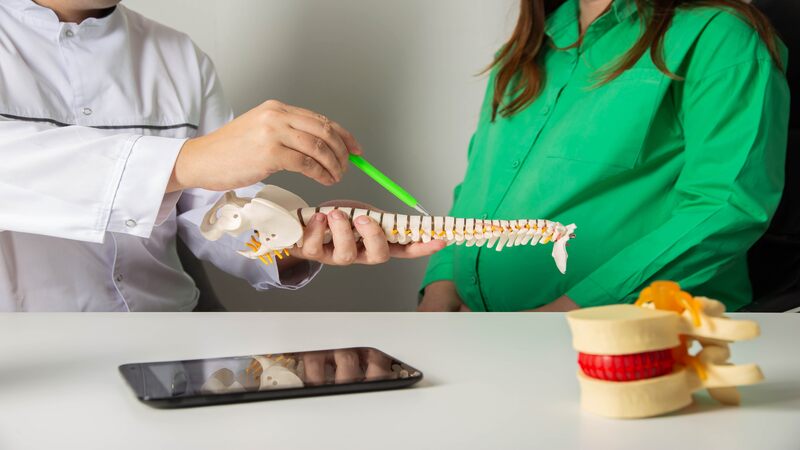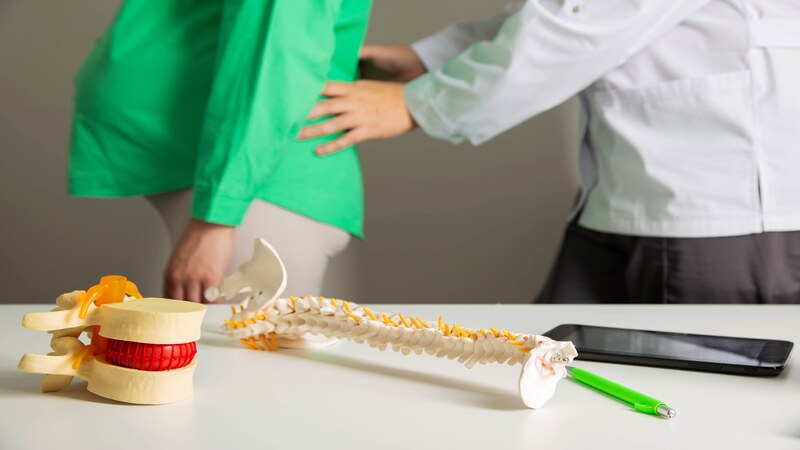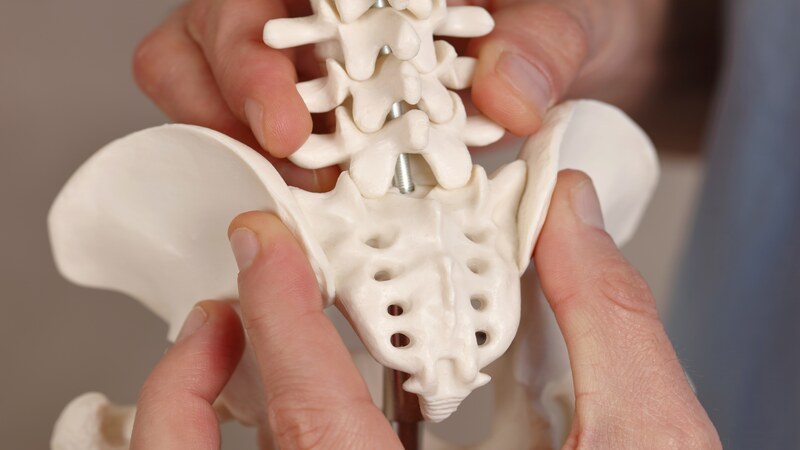 An expecting woman experiences several unique challenges during her beautiful journey towards motherhood. Preparing the body to accommodate a growing fetus can lead to significant changes in her body. Scoliosis during pregnancy is one such consequence that a pregnant woman might face. It may lead to potential complications and great discomfort.
An expecting woman experiences several unique challenges during her beautiful journey towards motherhood. Preparing the body to accommodate a growing fetus can lead to significant changes in her body. Scoliosis during pregnancy is one such consequence that a pregnant woman might face. It may lead to potential complications and great discomfort.
Scoliosis is often overlooked and may add more challenges to an already bumpy road. Understanding more about this condition is crucial to helping pregnant women manage their pregnancy better. Let’s explore how scoliosis can affect pregnancy and some tips and remedies to manage it well.
What Is Scoliosis?
Scoliosis is a bony deformity characterized by the lateral curvature of the vertebral column. Outwardly the spine shows a slight roundness in the upper part of the back and has a mild degree of inward curvature in the lower back. The spine with scoliosis resembles a “C” or “S” instead of a straight line.
What Can Be The Causes Of Scoliosis During Pregnancy?

Before exploring the effects of scoliosis on pregnancy, it is essential to understand the skeletal problem first.
You must be wondering how you have developed scoliosis! Well here is a list of some common and main causes of scoliosis:
- Unknown or idiopathic causes: Around 80 percent of cases of scoliosis do not have a definite cause and are termed as idiopathic. Sometimes doctors do not have an explanation for the actual cause
- Neuromuscular causes: Neuromuscular disorders such as muscular dystrophy or cerebral palsy are known to be the underlying cause for about 20 percent of scoliosis cases
- Length of leg: Scoliosis is also known to affect people having legs with varying length
- Congenital causes: Congenital scoliosis is the malformation of the spine occurring between three to six weeks of the gestational period. This happens due to the failure of segmentation or incomplete segmentation
- Genetic causes: According to genetic studies, the presence of gene GPR126 can affect the development of the spine in the early phase of life. The result is lateral curvature of the spine in later life
- Other causes: Some other causes of scoliosis include lifting heavy backpacks and faulty posture
What Are The Symptoms Of Scoliosis?
Scoliosis can reduce your lung capacity and can even exert pressure on your precious heart thus diminishing your physical activity.
- Improper curvature of the spine
- Presence of rib prominence
- Presence of a prominent shoulder blade due to rotation of ribcage in scoliosis patient
- Uneven lengths of arms, hips or legs
- Retarded nerve action
Scoliosis adversely affects your plans of having epidural anesthesia during labor. You should discuss the pain management techniques that will suit you with your doctor. Studies have revealed that usually pregnancy does not worsen spine curvature but in severe scoliosis cases, the curvature increases and the symptoms worsen than before.
What Health Issues Can I Face With Scoliosis During Pregnancy?

Here is a list of some health problems that are commonly seen in pregnant women with scoliosis:
Back Pain
This is not a symptom of scoliosis but pain can occur with advancing pregnancy. Expectant women often experience back pain or dull discomfort
Breathing Issues
With advancing pregnancy, the mother gains weight. This is essential for proper growth and development of the baby. The enlarging uterus in the third trimester exerts pressure on the diaphragm. This makes breathing difficult and the situation worsens if scoliosis is present. If you are experiencing such problems immediately consult your doctor
Difficulty in Movement
Walking can become problematic if you have an uneven size of legs. With a growing pregnancy, walking becomes all the more difficult
Treatment Of Scoliosis During Pregnancy
The treatment of scoliosis during pregnancy depends largely upon the progression and severity of the deformity. The following are the management options available for alleviating the condition:
- Painkillers
- Bracing
- Exercises
- Surgery
Besides a few minor problems, scoliosis does not do any significant harm to pregnant women.
For pregnant ladies with scoliosis, the best method of making the condition comfortable is by exercising properly. Straightening of spinal muscles helps reduce back pain. Exercise will improve the strength of back muscles and will also keep sthe pine in proper shape. Elastic resistance exercises are also helpful but take the help of an expert before doing them.
Will Scoliosis During Pregnancy Affect My Baby?
Scoliosis is not known to cause any major problems in pregnancy, women are known to carry their baby to term and deliver normally. Though earlier, elective C-section was given to deliver babies of women with scoliosis, it has been found that women can opt to try for a vaginal delivery provided there is no other pregnancy complication. However, scoliosis may prove to be a deterrent if you do plan to take an epidural during pregnancy. Do talk to your doctor about the pain management techniques that can be safe for you.
Self-care Tips For Scoliosis During Pregnancy
Self-care is also very important in treating scoliosis. Preventing the further curvature of the spine is the first and the most important part of scoliosis treatment. Occupational therapists can help in the adequate selection and fabrication of individually customized exercises. Besides a few minor problems, scoliosis does not harm you or your baby in any significant way.
Having scoliosis will not affect your pregnancy. Consult your doctor and visit him/ her regularly for antenatal checkups. Be active, keep yourself fit, and avoid all negative thoughts. Scoliosis should not be a major hurdle it is a simple skeletal disorder so do not allow it to prevent you from enjoying the beautiful phase of becoming a mother.
FAQ’s
1. Can Scoliosis Affect Your Pregnancy?
Pregnant women with scoliosis usually experience back pain and discomfort. It can make carrying out day-to-day activities quite challenging. There are possible complications during labor and delivery.
2. What Should I Avoid If I Have Scoliosis?
You should avoid carrying out strenuous exercises if you are pregnant with scoliosis. Avoid lifting heavy objects and be mindful of your posture. Also avoid spending long periods in one position.
3. Is Walking Good For Scoliosis?
Yes, walking can be beneficial in people with scoliosis. It also aids in improving your posture as well as strengthens the core muscles.
4. How To Correct Scoliosis Naturally?
Following certain tips can help in improving your symptoms of scoliosis. Engage in yoga and Pilates to strengthen your core and improve flexibility. Maintain a healthy weight and be mindful of your posture.

